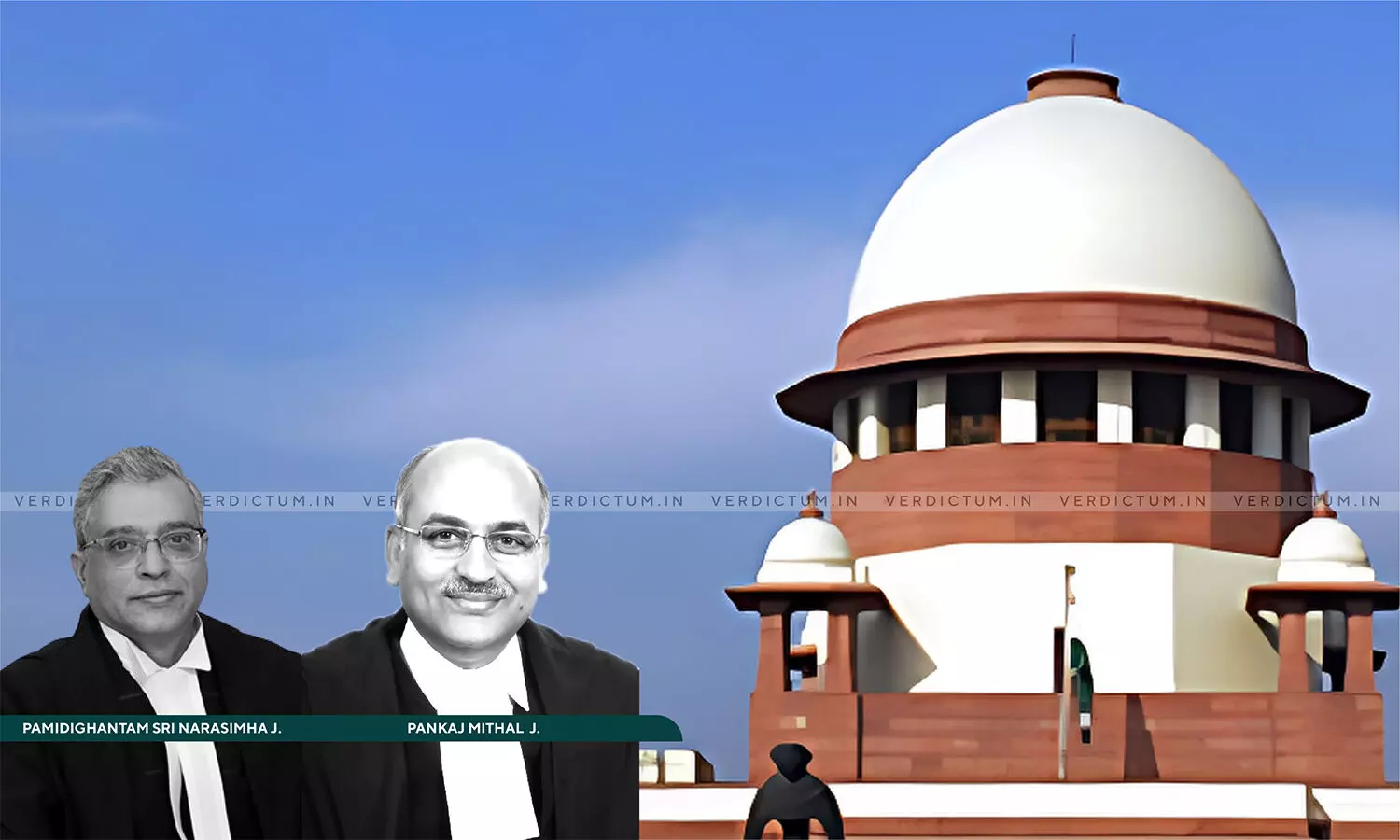
Deterioration Of Patient’s Condition Post-Surgery Not Necessarily Suggestive Of Medical Negligence Or Actionable Negligence On Part Of Medical Expert: SC
 |
|The Supreme Court has held that deterioration of the condition of the patient post-surgery is not necessarily suggestive of medical negligence or actionable negligence on the part of the medical expert.
The Court set aside the judgment of the National Consumer Disputes Redressal Commission (NCDRC) that found the doctor (appellant) liable for medical negligence while performing PTOSIS corrective surgery on a then-six-year-old patient (minor) for treating drooping eyelid. The Bench observed that there was no case for “actionable negligence” against the doctor since the “reasonable care, expected of the medical professional, is extended or rendered to the patient.”
A Bench of Justice Pamidighantam Sri Narasimha and Justice Pankaj Mithal held, “Deterioration of the condition of the patient post-surgery is not necessarily indicative or suggestive of the fact that the surgery performed or the treatment given to the patient was not proper or inappropriate or that there was some negligence in administering the same. In case of surgery or such treatment it is not necessary that in every case the condition of the patient would improve and the surgery is successful to the satisfaction of the patient. It is very much possible that in some rare cases complications of such nature arise but that by itself does not establish any actionable negligence on part of the medical expert.”
AOR Sudarshan Rajan represented the appellant, while Advocate Amit Prasad appeared for the respondent.
The complainants, the minor and his father, argued that the surgery had not only failed to correct PTOSIS but had allegedly resulted in further deterioration, causing decreased vision and double vision in the minor’s eye. They sought compensation for medical expenses, emotional suffering, and an alleged impairment to the child's future academic prospects before the State Commission.
The complaint, initially dismissed by the State Commission, was later partially allowed by the NCDRC, which held the doctor liable for medical negligence and directed him to pay compensation. Dissatisfied, the doctor filed an appeal before the Supreme Court.
The Supreme Court reiterated the popularly known Bolam’s Test while referring to its decision in Jacob Mathews v. State of Punjab (2005), wherein it was held that a professional may be held liable for negligence if he does not possess the requisite skill which he’s supposed to have or had failed to exercise the same with reasonable competence.
The Bench noted that the NCDRC itself acknowledged that the doctor had the necessary professional qualification and expertise to treat the patient but still granted compensation only for the reason that he did not bring the requisite skill and care in the treatment of the patient.
“The said finding is based on no evidence insofar as the complainants have not adduced any evidence to prove any negligence on part of the doctor rather have relied upon the medical records produced by the PGI. The said records merely demonstrate that post-surgery the condition of the patient had not improved but has deteriorated which as stated earlier may not be indicative of the negligence in the treatment of the patient,” the Court remarked.
Consequently, the Court observed, “A medical professional may be held liable for negligence only when he is not possessed with the requisite qualification or skill or when he fails to exercise reasonable skill which he possesses in giving the treatment. None of the above two essential conditions for establishing negligence stand satisfied in the case at hand as no evidence was brought on record to prove that Dr. Neeraj Sud had not exercised due diligence, care or skill which he possessed in operating the patient and giving treatment to him.”
Accordingly, the Supreme Court allowed the appeal.
Cause Title: Neeraj Sud & Anr. v. Jaswinder Singh (Minor) & Anr. (Neutral Citation: 2024 INSC 825)
Appearance:
Appellant: AOR Sudarshan Rajan; Advocates Srishti Sharma, Mahesh Kumar, Ramesh Rawat, Rohit Bhardwaj, Hitain Bajaj, Aryan Ahmed, Sambhav Sharma, Ashutosh Gupta and Nischay Chaudhary
Respondent: Advocates Amit Prasad, Madhukar Pandey, Ruchika Prasad, Ayodhya Prasad, Chanya Jaitly and Harshly Jain; AOR Mayank Kshirsagar